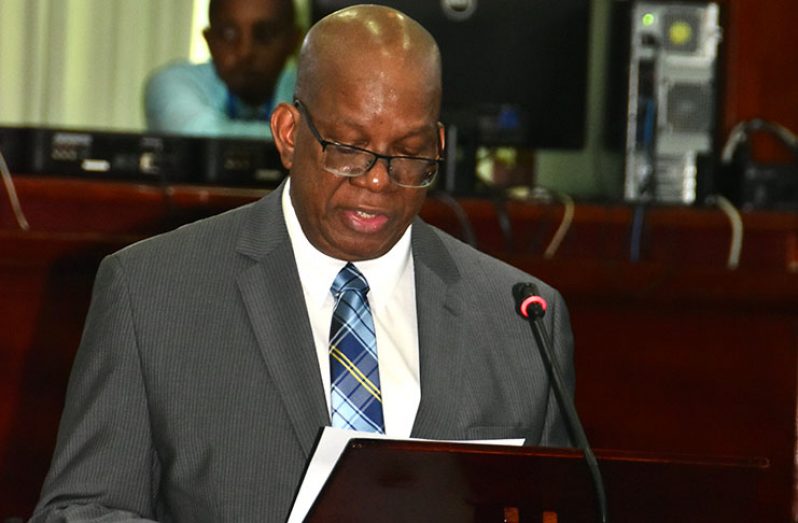WHEN it comes to sustainable livelihood interventions by Government, taxpayers must get value for their money, Minister of Finance Winston Jordan has said. This, Jordan explained, is why he believes in Guyana there is need to move away from being input-focused to becoming more evidence-based and results-oriented when it comes to such initiatives.
Jordan made these remarks on Friday while delivering the feature address at the opening of a three-day conference titled: “Using Evidence and Evaluation to Improve Guyana’s Livelihoods Programmes” at Cara Lodge, Quamina Street, Georgetown.
At times too many people become focused on just how much is going into livelihood initiatives, without really checking to see if anything beneficial is coming out of the amount of money being invested, Jordan said.
“Good intentions do not automatically translate to desired results. It is not enough to simply put livelihoods programmes in place. We must also ensure that they deliver results,” he said.
Towards this end, the Finance Minister, in collaboration with the United Nations Development Programme (UNDP), has engaged the assistance of Innovations for Poverty Action (IPA), a research and policy non-profit organisation that discovers and promotes effective solutions to global poverty problems.
According to the IPA, “In recent decades, trillions of dollars have been spent on programmes designed to reduce global poverty, but clear evidence on which programmes succeed is rare, and when evidence does exist, decision-makers often do not know about it. IPA exists to bring together leading researchers and these decision-makers to ensure that the evidence we create leads to tangible impact on the world.”
IPA is founded by Yale University Economics Professor, Dr. Kean Karlan, who will be conducting the conference along with IPA Programme Director, Nathaniel Goldberg, and Programme Manager Kelsey Wright.
In Guyana, some $3 billion from the 2017 budget is expected to be shared between the Ministries of Indigenous People’s Affairs, Education, Social Protection and Business, specifically focused on livelihood interventions; and Jordan is adamant that Government cannot simply throw money into these programmes without determining their effectiveness.
The conference will engage these ministries on developing improved monitoring and evaluation techniques and application.
Friday’s conference was attended by all the ministers of the respective ministries, with the exception of the Minister of Education, Dr. Rupert Roopnaraine.
Jordan noted that in the past, Guyana has engaged in many livelihood programmes, but often things fall by the wayside because the programmes cannot be sustained, and in the long-term, the results and benefits were not seen.
Moreover, there is often a lack of data and assessment to determine the extent to which the programmes may or may not have been successful
“It is our goal that during this conference, we will develop guidelines to direct programme design and implementation, which will serve to underpin an effective and transformative suite of complementary livelihoods programmes in Guyana,” Jordan commented.
“Our visiting team are not only experts in using evidence and evaluation to design better development programmes, but have also been instrumental in the development, evaluation, and graduation approach for moving people out of extreme poverty and into sustainable livelihoods.”
In the opening lectures on Friday, Goldberg and Wright started off by explaining a few practical examples of areas and programmes that the body has worked on and how they went about evaluating the efficacy of the programmes to determine sustainability.
The overview included poverty-reduction programmes rolled out in India, Nepal and several African nations.
Taxpayers need value for money –Jordan says
SHARE THIS ARTICLE :
Facebook
Twitter
WhatsApp




.jpg)










